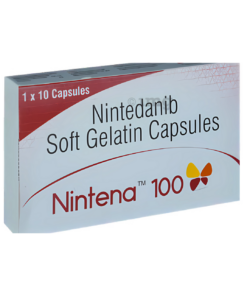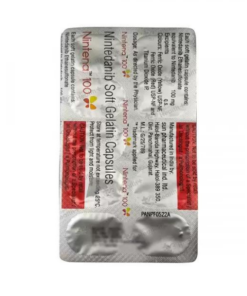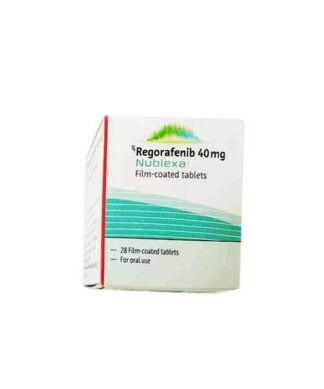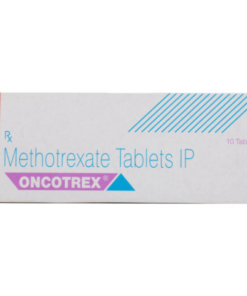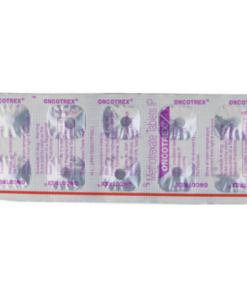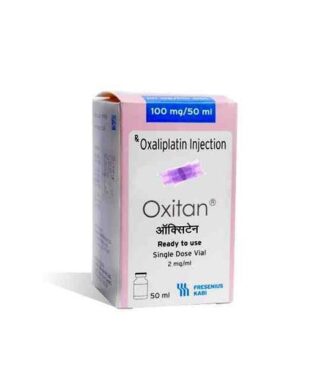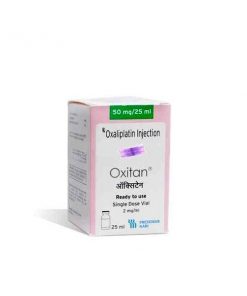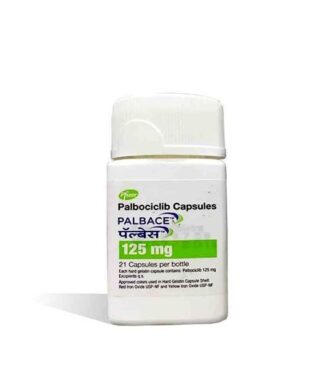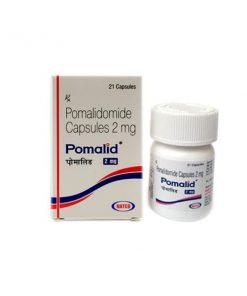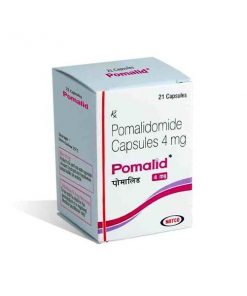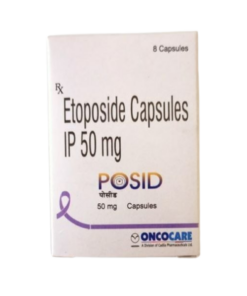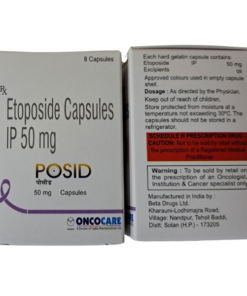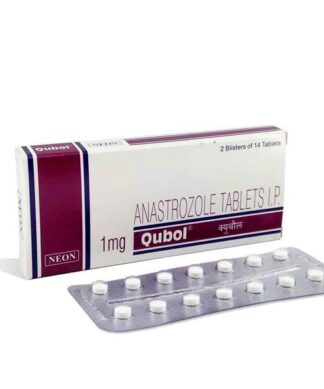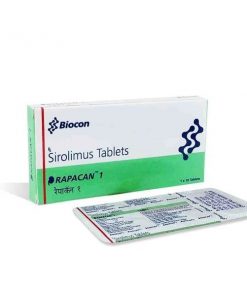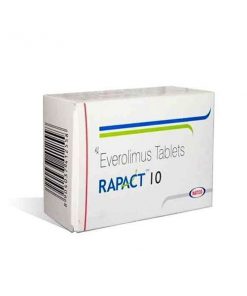Anti Cancer
Cancer drugs cater not only to a specific cancer but also to a wide range of cancers. Cancer occurs when cells grow disorderly and do not conform to the usual rate of growth.
These drugs provide a good option for managing the symptoms of cancerous diseases. Common methods of cancer treatment include surgery, chemotherapy, radiation, or a combination of these.
Anti-cancer medications help treat and control the growth of various cancers, such as cervical cancer, small cell lung cancer, breast cancer, ovarian cancer, head and neck cancer, testicular cancer, osteosarcoma, lymphoblastic leukemia, myeloblastic leukemia, and more.
Cancer cells can be stopped in their tracks with pills specifically designed to stunt the spread of cancer and inhibit its growth. Take steps to fight the cancer and regain a normal life by purchasing cancer treatment drugs.
Common symptoms of cancer
The symptoms may vary in each cancer type and the organ or part of the body affected. Some common symptoms of cancer include:
- Abnormal bladder changes
- Bowel changes
- breast changes
- swelling or unusual lumps
- Pain in the chest or upper abdomen (heartburn or indigestion that does not go away after eating).
- Skin changes
- chronic headache
- stomach pain
- persistent body pain
- Fatigue
- fever or night sweats
- Cough or hoarse voice that remains unchanged
- The unexplained excessive weight gain or weight reduction.
Causes Of Cancer
Cancer may take several years, or even decades, to develop. That is the reason why the age at the time of cancer diagnosis is above 65 years in most people.
Although cancer is frequent in seniors, it is not restricted to adults only — cancer can be diagnosed at any age, including childhood.
Your Habits
Many people already know that some of their habits could actually increase their risk of getting such diseases.
Smoking, drinking more than one alcoholic beverage per day (for women of any age and older men than 65), and men who are not elder than 65, excessive sun exposure or frequent blistering sunburn, being overweight, and having unsafe sex are some of the factors that can cause cancer.
You are able to break these habits in order to decrease your chance of developing cancer — though these habits are not all the same to break.
Your Family History
Genetic Predisposition of cancer is a rare case in but it is possible. If you know that you have a family history of cancer, it might be possible that some of your family members could be passing over the same mutations from one generation to another.
You could get pre-genetic testing to find out if you have inherited mutations which might increase your risk for some types of cancer.
Your Health Conditions
Some of the chronic health conditions, such as ulcerative colitis, for example, can considerably raise the chances of the associated cancer development. Visit your doctor to find out about your risk.
Your Environment
The environment in which you live can potentially be polluted by contaminants that can elevate your chances of developing cancer. In this case, you don’t have to be a smoker, but you can still suffer from the health problems caused by passive smoke.
Chemicals in your home or workplace, such as asbestos and benzene, that are mentioned as the risk factors of cancer also are linked to the development of this disease.
Adverse Effects On Body
- Fatigue
- Pain
- Changes in appetite
- Changing body image
- Loss of interest in sex
- Fertility
- Sleeping problems
Treatment of cancer
Cancer is a condition that can limit life expectancy, with factors such as lifestyle changes, diet, and environmental factors contributing to its prevalence.
The treatment of cancer involves the use of various medications that can have an impact on the body.
Early detection and treatment of cancer can significantly increase the chances of a cure. Certain types of cancer, such as breast, skin, mouth, prostate, rectum, and testicular cancer, can be detected through self-examinations or screenings in the early stages when symptoms may not be present.
Cancer is often diagnosed when a tumor is detected or specific symptoms are observed.
Treatment options for cancer include a variety of methods, with the choice depending on the type of cancer and the stage of the disease.
Some patients may not have the opportunity for additional treatments beyond the initial one. However, for the majority of cancer patients, early detection and treatment can greatly improve outcomes.
Chemotherapy -
Chemotherapy is the most common treatment for cancer, using powerful drugs to destroy cancer cells. It can be administered through injections or pills.
Radiation therapy -
Radiation therapy kills cancer cells using doses of radiation. Sometimes it is used in combination with chemotherapy.
Surgery -
In some cases, tumors may be surgically removed by specialists.
As a student, I will explain the benefits and risks of genetic engineering for human health. Genetic engineering has the potential to improve human health by creating new treatments and cures for diseases. However, there are also risks such as unintended consequences and ethical concerns that need to be carefully considered.
Hormone therapy-
Sometimes, hormones can shut down other hormones that contribute to cancer. For example, men with prostate cancer may be prescribed hormones to prevent an increase in testosterone, which is linked to prostate cancer.
Biological response modifier therapy involves using natural or synthetic substances that enhance the immune system or other biological responses to improve treatment outcomes.
This type of cancer treatment acts as an immunostimulant, boosting the immune system and maintaining its regular function by altering the body’s natural processes.
Immunotherapy -
Immunotherapy uses the body’s immune system to treat cancer, making cancer cells selective while allowing healthy cells to remain unharmed.
In a bone marrow transplant, also known as stem cell transplantation, dysfunctional stem cells are replaced with healthy ones. Chemotherapy is given beforehand to prepare the body for the transplant process.
FAQs-
1. What kills cancer cells naturally in the body?
A. Curcumin, green tea, resveratrol, and medicinal mushrooms may kill cancer cells naturally.
2. Which is anti cancer drug?
A. Chemotherapy, immunotherapy, and targeted therapy are common types of anti-cancer drugs.
3. Can Stage 4 cancer be cured?
A. Stage 4 cancer can sometimes be treated but is often considered incurable.
4. What is the hardest cancer to cure?
A. Pancreatic cancer is one of the hardest cancers to cure due to late detection and aggressive nature.
5. What is the deadliest cancer?
A. Pancreatic cancer is often considered one of the deadliest cancers due to its aggressive nature and late detection.
6. What is the most aggressive cancer?
A. Pancreatic cancer is often regarded as one of the most aggressive types of cancer.


